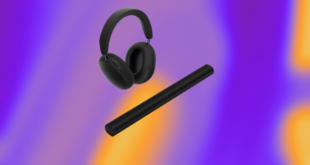When you’re looking for a new bed to replace your old mattress, there are a few key things to consider: your favorite sleeping position, your body type, relevant health conditions, materials and your budget. Your most dominant sleeping position should help dictate your best bed mattress type and firmness level of your bed. Your body weight, on the other hand, should help you determine whether you’d be OK on a foam mattress, or if you should opt for the extra support of a hybrid mattress bed. Your budget will help you narrow down the best mattress-in-a-box type you have the means to spend money on. Lastly, different health conditions require different mattress needs, and materials help determine whether or not you’ll find the bed comfortable.
Sleeping position
- Side sleepers usually sleep best on a medium to soft mattress. They typically need a bed that gives underneath the shoulders and hips to prevent joint pain and offer pressure relief.
- Back and stomach sleepers may want to consider medium to firm beds that provide back and spinal support. Soft mattresses that give may cause back pain.
- Combination sleepers should cater to their dominant position, or go for a bed with a medium profile that offers both support and pressure relief.
Body type
- The more body weight you have, the softer a mattress is going to be and the more support you’ll need. Hybrid mattresses tend to be the best for individuals over 230 pounds because steel is stronger and more durable than foam. Foam mattresses, on the other hand, won’t be as supportive or long-lasting.
- Average to petite individuals can sleep just fine on a foam or hybrid mattress. Just remember, the lighter you are, the more likely you are to experience a firmer mattress.
Health conditions
- People who sleep hot or women suffering from menopause should opt for a cool sleeping mattress to help keep body heat down. Either a bed like a Purple mattress which is made with a special gel-like material that offers airflow and doesn’t retain heat, or a bed like GhostBed Luxe that has special cooling tech throughout the bed.
- Those with arthritis or joint pain should consider a mattress that will relieve pressure on the medium to soft side that cradles the pressure points.
- People who suffer from back pain may sleep most comfortably on a medium-firm mattress profile. It offers ample support and will relieve pressure at the same time, to prevent the back from sagging and cradle pressure points.
Materials
- Memory foam is typically a pressure-relieving material and responds slowly to pressure for a hugging, conforming feel. It can be hard to switch your sleep position, especially if you’re a combination sleeper.
- Latex foam is either synthetic or naturally sourced from the sap of tropical rubber trees. Latex foam beds are bouncy, durable and supportive. They are also hypoallergenic and antimicrobial. The downsides? Natural and organic latex mattresses can be pricey, and they aren’t as good as memory foam at isolating motion.
- Poly foam is a synthetic foam that bounces more than memory foam but is softer than latex foam. Most comfy couch cushions are made with this foam. it’s breathable and affordable, but may not be as durable as other foams.
- Innersprings or coils are found in traditional and hybrid mattresses. They make a bed more supportive and durable.
Trial, shipping and warranty
Every online mattress brand offers some level of a trial and warranty for its beds. The duration of the trial will vary by the brand you choose. Most mattress trials are around 100 nights, though some brands offer an entire year, like DreamCloud or Avocado. Trial isn’t something that should make or break your buying decision, but it is something to keep an eye on so you have enough time to decide if the bed is right for you.
Most online mattress brands offer free shipping, though that’s not always the case with returns. Pay attention to each brand’s return policy as some will charge a processing fee if you return them. Thankfully, there aren’t that many that charge you for returns.
Budget
- You can find mattresses at just about any price. Cheap bed-in-box mattresses can go for a few hundred dollars.
- The average bed in a box is around $850 to $1,200.
- Premium beds that are of the highest quality or designed with extra bells and whistles usually go for over $1,200.
 meganwoolsey Home
meganwoolsey Home



